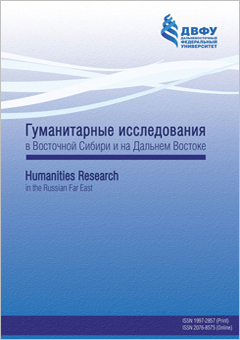Self-reference of knowledge in the strong programme of the sociology of knowledge
DOI:
https://doi.org/10.24866/1997-2857/2021-2/97-104Keywords:
strong programme, sociology of knowledge, self-reference of knowledge, performative knowledge, social institution, theory of meaning, constructivismAbstract
The article deals with certain aspects of the epistemological position of the strong programme in the sociology of knowledge, namely social constructivism, self-reference of knowledge and nonetheless realistic stance towards the world. The very combination of constructivism (and self-reference for that matter) with realism is by no means frequent and deserves special argumentation. This is precisely what David Bloor and his colleagues try to do. His approach implies the analysis of some popular individualistic theories of meaning (and likewise theories of intentionality) and – by showing their inadequateness – suggests the social theory of meaning. The social semantics, from his point of view, implies self-reference of knowledge on the one hand, and a realistic position on the other. The implications of this position are analyzed in the article.
Downloads
References
Лебедев М.В. Стабильность языкового значения. М.: Издательство ЛКИ, 2008.
Лебедев М.В., Черняк А.З. Онтологические проблемы референции. М.: Праксис, 2001.
Моркина Ю.С. Социальная теория познания Д. Блура: истоки и философский смысл. М.: «Канон+» РООИ «Реабилитация», 2011.
Barnes, B., 2011. Essentialisms in the sciences. Critical Quarterly, Vol. 53, no. 4, pp. 90–102.
Barnes, B., 1982. On the extensions of concepts and the growth of knowledge. Sociological Review, Vol. 30, no. 1, pp. 23–44.
Barnes, B. 1983. Social life as bootstrapped induction. Sociology, Vol. 17, no. 4, pp. 524–545.
Barnes, B. Bloor, D. and Henry, J., 1996. Scientific knowledge: a sociological analysis. Chicago: University of Chicago Press.
Bloor, D., 1996. Idealism and the sociology of knowledge. Social Studies of Science, Vol. 26, no. 4, pp. 839–856.
Bloor, D., 1997. Wittgenstein, rules and institutions. London: Routledge.
Bucchi, M., 2004. Science in society. An introduction to social studies of science. London: Routledge.
Bradley, R. and Swartz, N., 1979. Possible worlds: An introduction to logic and its philosophy. Indianapolis: Hackett Publishing Company.
Collin, F., 2011. Science studies as naturalized philosophy. Dordrecht: Springer.
Grayling, A.C., 1990. An introduction to philosophical logic. London: Gerald Duckworth and Co.
Kemp, G., 2013. What is this thing called philosophy of language. New York: Routledge.
Searle, J.R., 1995. The construction of social reality. New York: Free Press.
Searle, J., 1999. Mind, language and society: philosophy in the real world. New York: Basic Books.
Downloads
Published
Issue
Section
License
Copyright (c) 2021 Александр Валерьевич Кабанов

This work is licensed under a Creative Commons Attribution-NonCommercial-NoDerivatives 4.0 International License.















